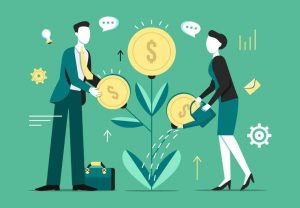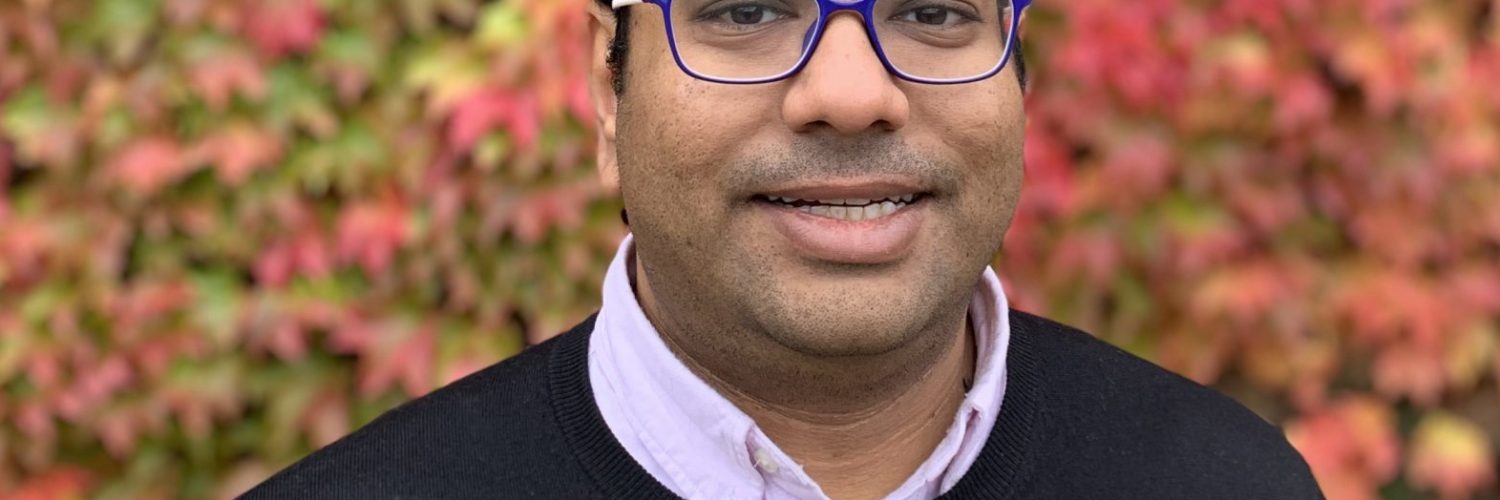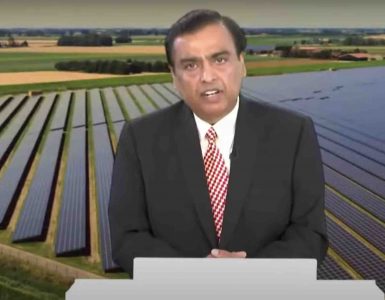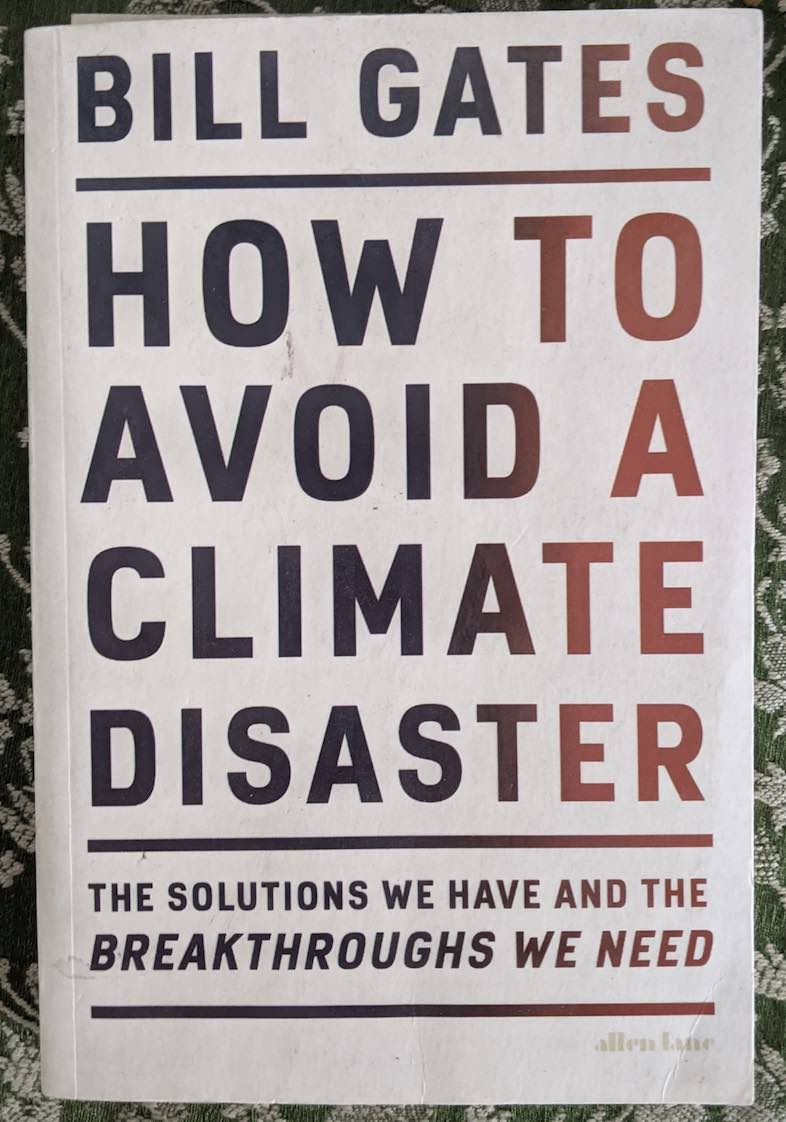If I were to ask you “where exactly does your bank put your hard-earned savings, your salary”?
- What if it is going to companies that are responsible for deforestation and wiping out the jungles and wildlife?
- What if it is going to manufacturing units, that are contaminating our drinking water or causing cancer by producing dangerous gases?
- What if it is going to the meat industry, which is one of the leading causes of carbon emissions?
That’s why we need sustainable finance.
We sat for a conversation with Mayur Singh, a former investment banker, but a strong advocate of sustainability. Based out of the financial hub of the world, Singapore, Mayur co-founded Mattrvest in 2019.
Currently, Mattrvest is operating in Europe and it connects users with sustainable finance options that are not limited to investments. The company helps in educating investors about sustainable options and then works with Banks to bring transparency to the process.
In addition to what the company does, the discussion also demystified a lot of ‘so-called’ complicated financial terms – like sustainable finance, ESG, and Green Bonds.
Here is an edited version/excerpt of our conversation with Mayur, for the full discussion please watch the video.
Tell us about your journey.
I had a conventional start to my career – I started in investment banking, then worked with the big four and after that, I moved to South Asia. I’ve been living in Singapore for the last six years and three years in Malaysia before this. My work was around corporates’ investment turnaround. To sum it up I was largely in finance and corporate strategy.
But I was always passionate about doing something in the impact sector. I did my undergraduate in economics from St Stephens, Delhi. If I had a choice I wanted to get into the impact sector at that point in time. But it was partially my ignorance and stupidity that I did not enter. At that point, I thought that if I have to get into the sustainability sector it can be only in a non-profit way and that was not something that I was looking to do. 10 years later, I decided to take the plunge and quit my job in Singapore.
I wanted to work at the cross-section of sustainability, technology, and impact measurements. It was basically about finding a business model that can utilize this holy trinity. I focus on how you can pick these three points and change the way business models are done today.
I built a couple of startups – the first one was an artisanal e-commerce marketplace and the second one was Mattrvest.
In the case of an artisanal e-commerce marketplace, we created a business model at the backend; we aggregated communities from 10 Asian countries. It worked offline but we could never figure out the online user journeys. Hence, it pivoted into something called The Green Collective which runs in Singapore today. That was basically an experiment and it worked very well. It financed itself and has around 40+ members who benefited from it. We’ve been able to transfer around 1.5 million dollars in additional sales to our beneficiaries.
How did Mattrvest happen?
What I was seeing was sustainability on the consumption side of it, which is where I was working, which meant you should consume sustainably. However, the one topic which is definitely not talked about is safe sustainability.
There is research from Europe which proves that as compared to your sustainable consumption habits if you change the way you save, the impact of that is almost 27 times more.
And that makes sense because where do the bucks start? The bucks start with the fact that – you get your salary, you put it in your savings account, and then your bank puts it wherever the hell it wants to. They will invest in whatever company!
That’s where the genesis of Mattrvest came in – that in today’s day and age of sustainability, data, and technology. While people are sharing posts about fires in Amazon, it’s actually your money that is going to fund companies that are causing deforestation.
Everyone in those protest marches whether it is in Europe, the US, or Asia is completely hypocritical. Because you don’t know that it’s actually you who funded it.
That’s where I think the journey with Mattrvest has been very interesting because there are two problems – one is money, something that people don’t like to talk about and if you add the sustainability of money on top of it then it’s a complicated topic to explore.
At Mattrvest we don’t suggest companies. We don’t provide advisory; we connect you with financial advisors who give you advice. In principle, what we are trying to do is to connect you with sustainable finance options and it’s not limited to investments. Currently, Mattrvest is only in Europe.
Sustainability is complicated and that’s what we are trying to demystify. It’s also great to see people like you trying to do it at a grassroots level from an educational perspective.
The other beautiful thing I love about working in this segment is that it’s just much more collaborative as compared to any other industry that I have worked in.
To demystify the complicated concepts of sustainable finance for the common man, can you explain it more?
Let me explain what the sustainability of your money means.
Let’s say you get your salary from your company and it goes to your bank account. Now it’s actually puzzling. If you actually do a survey you will find that most of us don’t understand what the bank actually does.
Forget about whether it is the bottom of the pyramid or the top of the pyramid or the middle of the pyramid, we did a survey in Europe and we found around 60% of the people actually had no clue. Almost 50% of that 60% think that money is actually kept physically; kept somewhere.
That is the basic issue of financial literacy which is a big issue not only in Asia and Europe but everywhere across the world it is a big problem. There’s nothing to be ashamed of because most of us are basically financially illiterate at some level or the other. The truth is that banking and financial services are abstract concepts.
Going a bit to the human psychology perspective, the cognitive part of the brain through which you make a lot of money decisions is very different from when you make a decision on what to buy on Amazon or Flipkart. That is why we don’t think about these things.
What happens in practice is that you put your money in a savings account and the bank gives you a certain rate of interest for putting money in the savings account. The bank then takes that money and gives it out to either people as home loans, car loans, or whatever the products are out there or it gives it to companies. It’s a very simplistic definition.
What the sustainable finance hypothesis says is that let’s start changing the way the banks invest their money. I know it’s very tough to imagine that but actually, there is a ranking of Indian banks done by Oxfam. It’s called the Fair Finance Network which ranks different banks based on their sustainability.
They have done a ranking across eight to ten countries across the world – predominantly European countries just because there’s more data available on sustainability. There is a ranking for different banks in India as well. What does a sustainable bank mean? Let’s just forget investments only because they talk about sustainability in finance always comes to investment.
To give you some examples, Germany today has five sustainable banks. They will take the money from your salary and invest it in sustainable portfolios of companies or sustainable companies or they will give out loans to sustainable SMEs working in renewable energy or something.
Or they can do home loans, coming back to consumers. They do a sustainable home loan. What does that mean? Sustainable home loan interest rate actually depends on how sustainable your house is – who’s your electricity provider, where did you get the furniture from, what is the origin, can you get me a certification.. and the interest rate lowers as the sustainability of your home increases. So there are these very innovative products.
With Mattrvest we do a lot of webinars around explaining these concepts because I completely agree with you; people like you and me will talk and we will understand and we’ll be happy but it’s so abstract. The simple way of understanding it is that you have financial instruments whether it’s a credit card, home loan, working capital loan for a company, investment anything – think of it as going through a funnel.
That funnel is basically a list of criteria around sustainability whether it is environmental, social, governance-related, or anything. And then, on the other side, you have new products which are sustainable. That’s a simple way of understanding what sustainable products are. That is what sustainable banking overall is.
There are different things you can do in sustainable investments. There’s a lot of debate about what is the right way of investing and all. For Mattrvest because the clientele we are trying to target is more of people who are first-time investors we don’t recommend getting into stocks.
Stock picking is a very different skill set that we don’t expect individuals to have. We are focusing more on long-term investment products, a lot of pension products that exist in Europe as well which have a lot of sustainable alternatives. Of course, the challenge of doing it not just in India but in Singapore is that there is not enough supply for retail investors of these products.
It declutters a lot of misconceptions about sustainability. What is the process like for Mattrvest assuming I am the investor?
How the product would work is that there is an initial assessment based on which you can choose which track you want. There are two modules within the product. One does you want to save more or do you want to learn how to save first? That’s because you can’t be investing without saving.
Or do you want to jump into investing? If you’re going to save, we automate a lot of expense management for you and tracking. A lot of these answers will become very specific to Europe but that’s because Europe has open banking in which the banks have to declare open their APIs and PSD2 which is the regulation. So it’s easy for us to build products through which you can link your bank account and we can do analytics on it.
Initially, the idea was to link people directly with portfolios or sustainable portfolios of asset managers so you could find a fund that would be better for them. We changed our strategy post-COVID because we were looking at a market where the investor is very conservative, unlike Asia. Asia is very different.
We also realized the importance of regions and links to that was the role of a human interface. That is where today we are linking people with financial advisors. The value that we provide to financial advisors, on the other hand, was one this is a clientele they have completely lost; they don’t get this client and they’re not able to catch them young. Also, most of their clients are just getting older and older. That’s why the advisors are struggling.
Sustainability acts as a big hope for people. We end up saving them a lot of time per conversion. We reduce their journey of converting a client and that is where our business model also comes in.
An ideal journey would be that you come into Mattrvest and learn to save more. Of course, again, in Europe, we can do this because there are companies that can actually show the carbon footprint of your retail purchases. So what will work towards is creating the overall sustainability score of your money. How sustainable are you with your money and purchases? You do this in the same old module; as you start saving you can invest that money into sustainable options via an advisor. That’s the journey.
Can you tell us about ESG? I believe it’s a global concept and multinationals are focusing on it too.
ESG which stands for environmental, social, and governance – is one of the most popular criteria for judging companies.
People think of sustainable finance as a charity and that’s a myth that needs to be broken because actually, it’s not at all. I’ll cover that in two points.
ESG is a list of processes. What it means is anything in life that we do from crossing a road when there are too many cars or the red light is red, you always take a risk-return benefit. If you’re getting late for a meeting and the light is orange and turning red, you might take the plunge like a very simple human behavior. Finance is exactly the same and how companies get valued is exactly the same.
The valuation of a company depends on the risk that exists in that company making a product or providing a service. Now environmental, social, and governance (ESG) is truly a list of processes that you can incorporate into your company’s operations. As you incorporate these processes in your operation which makes it more sustainable your risk to the company comes down. As the risk comes down the valuation increases. This was the hypothesis of ESG.
There’s a very interesting history to ESG and it was actually a colored person in the US working with GE who wanted to have sanctions against GE products going to South Africa. That was because it was the apartheid era and for the first time ever GE came up with a directive that they are not going to work with suppliers who are dealing with something like this based on a social principle.
That’s one thing to understand the ESG process. What happens in practice in sustainable finance is to distinguish one company from the other you have a rating for how good the company is on the ESG principles. That is how the ESG rating comes in.
For normal retail investors, it’s very easy to access ESG ratings for companies. You can just go to Yahoo Finance. Yahoo Finance uses Sustainalytics which is a rating agency to tell you the ESG rating of every company.
One out of eight to ten principles can be applied in order to create a sustainable investment portfolio. There are many techniques that are used – ESG is just one of them but yes it is the most popular one as well. If you look at larger companies whether it’s Unilever or any listed companies, I would say you will find an ESG rating.
Is Mattrvest connected with ESG rating?
We stay aloof because we try to stay away from providing financial advice. We want to do that in the future as we grow. But today the stage we are at, we don’t want to be providing financial advice because we have a human being to do that later.
However, we focus much more on educating the customer because when we did a survey in Europe one of the biggest issues with investing for young working adults, 25 to 34, is that they don’t know where to start. The second one is the discomfort people have in starting to invest which comes from a lot of literacy-related issues.
So the problem we are trying to solve is more about telling people what ESG is. We also explain what a sustainable portfolio is because “portfolio” is another financial jargon word.
I explain it to people as making a salad. You can have meat that has a large carbon footprint and you can have lettuce that has been grown in your kitchen garden. Now those have two very different footprints and what you’re trying to get to is, and linking it back to the ESG conversation, you’re trying to make a salad that you want to be healthy but you also want to eat.
Depending on what you want that is very important – you might be vegetarian, vegan, or crazy about meat. Depending on that footprint, asset managers will take these different crops so to say, or meals, and create that salad. That would give you a certain amount of satisfaction, health, and taste perspective. Think of that as an ESG rating for a portfolio. That’s the best way to think about it.
As we are speaking about Sustainable Finance, there is something called Green Bonds. Could you please elaborate a little on it?
Bonds are essential instruments that are a kind of debt, kind of a loan. A company can issue a Green Bond and they would issue a Green Bond for which they would do a certain set of activities and they want to finance it and then people can access it.


Green Bonds are issued both to institutional and retail investors. Institutional investors are people who are looking to invest large sums of money. So when Green Bonds normally are issued they will be initially open to institutional investors. Let’s say I and you run a company and we are trying to build a new manufacturing plant. However, it’s going to run on renewable energy, it’s ‘circular’ in the way it’s designed and it’s also sustainable. So we will issue a Green Bond but initially, if we have to raise like 100 then we want most of the Bond to be subscribed quickly. So we will get more institutional people who can put large sums of money and then you open it to retail investors which are people like you and me. Green bonds have been very popular.
However, Green Bonds have also been criticized because there’s a lot of greenwashing that happens with Green Bonds. But Green Bonds are a very good way for people to start investing in sustainability because they are very low risk. That is where there is a huge push toward Green Bonds. When I look at the role that Green Bonds would play, and if you look at it from a portfolio perspective, it provides you the low-risk option. Green Bonds are getting very popular.
To us, at least principally, it sounds interesting because the companies are making investments in green practices or sustainable practices. Let’s see how that goes. Thanks for demystifying so much jargon. Coming back to Mattrvest, when is the product launch? How does the product look?
We’ll be looking to launch now and are creating it. One thing which we’re doing before that is we launched a campaign called ‘My Money, My Planet’. What we did was that you can go to the website – it’s called mymoneymyplanet.com – and you can actually ask your bank where your money is saved because that’s what we wanted to do – enable the people to understand first.
We started it in Europe and we got a lot of traction. Some of the banks started getting too many letters and so they scheduled a call with us.
It’s not to say that banks are bad; we need banks, even with so many FinTechs whether it’s in India or whether it’s anywhere, you need banks. Let’s not forget that because one wire card loses two billion dollars just overnight today and that’s a fact and that’s a much stricter regulation. I am from a very different school of thought. I think you need banks. Maybe the way we have used banks in the past needs to change and FinTechs will actually provide huge value. We’re trying to work with the banks to do exactly what we’re doing in this call. Let’s demystify, let’s explain to people what’s happening.
If you go to banks and a lot of conversation around loans is that – Oh banks have been funding coal despite their commitments towards sustainability – and this is a global argument. However, when you talk to banks you’ll realize that they have said that they will not fund coal moving forward. I’m talking of multinational banks. However, they cannot stop a loan facility that they gave for a 30-year loan to a company that was done in 2010. They cannot do that.
There is a gap and there is a huge issue in the way financial institutions have been talking. A lot of what they have been talking about is intentional so there could be hidden fees, hidden charges, and everything else. The sector has remained lazy for a very long time and that’s why every 10 years it crashes. There is a reason; there is a systemic issue in it. Because of that, you have given up on actually educating the consumer.
That’s what we want to do with our campaign. We started it in Europe and we’re trying to get it to Asia just to increase awareness. So, October or November is when we start talking about it more in Asia. It’s very simple – you sign a manifesto and we send a letter to your bank on your behalf asking and demanding the bank where is my money, and where my savings claim. That’s where the conversation honestly needs to start.
Are people responding to this platform?
Yes, yes! We started in Europe at a very small level. You can do two actions. You can either sign the manifesto or you can take a selfie with your bank card and tag your bank and ask.
It was a bit like the Fashion Revolution Campaign on who made my clothes. We were taking inspiration from that and I was like where is my money saved? That’s how we started. It picked up a lot in Berlin which is where we started, and a bit in Belgium which is where my co-founder Diane is based.
We got a bunch of letters sent and then we started focusing on talking to banks and figuring out how to solve this problem. I’ll reiterate it again because everyone starts thinking that this is a crazy activistic campaign. No, it’s not! It’s actually to work with the banks.
We are doing a conference, where we will bring two or three of these banks who want to come out and explain their point. So yes FinTech, valuations, VCs, and all are great but the problem that needs to be solved is to get people to understand what is actually happening, and then it’s up to an individual to make the choice. That is the role we are looking at.
We’re building our MVP and building parts of the product and then we will channel this community into taking action which will be through Mattrvest. That will be early next year.
Can you talk about your inspiration or any inspirational figure that you look up to? What is your personal connection with the environment and sustainability?
One of the biggest issues in the sustainable sector and with no offense to anyone is that it’s only now, I would say in the last 5-6 years, that you have mainstream people coming here. The sector was initially made by climate scientists who speak more jargon than finance people.
Personally, I’m a big fan of creating social impact and I’m a part of a network called The High Global Leader. So there is something that you have a purpose in life and for me, that purpose is around communities and people who are not as privileged as you and me to do a Zoom call, let’s say. However, that impact can be done in multiple ways.
I have kind of centered my entrepreneurial journey on this. I’m not an expert at it but I’m still figuring out things. What is at the core of my belief system is that if I am not doing something which is really impactful I will not do it.
We had that case with Mattrvest. We actually launched Mattrvest in Singapore and as we went about doing the initial product-market fit. We realized that the idea will work but we have to remove sustainability from it.
We were three of us that time; for two of us as co-founders, me and Diane, we were like ‘But, why will we do it?’ because I can make money that’s not a problem. If I had to just make money out of building a startup then I don’t think that’s the best idea for me to do a startup and make money. It’s just too much risk for a very low return that way.
It was something more personal for me and it was a personal commitment that I idealistically had post-undergrad but I’m very happy for my journey because I think I’ve managed to get skill sets that I can bring to this sector and that’s honestly what I’m trying to do – whether it is on the consumption side, which is via green collective or on the saving side with Mattrvest.
There’s a huge personal purpose behind building these businesses which goes beyond generating a lot of returns. It’s challenging because if you deal with a lot of sustainable businesses you will realize that truly sustainable, growth is also not the same. Sustainable investments have overperformed normal investments during the COVID time by 12%. So if someone comes and tells you don’t invest sustainably because it doesn’t perform, that person doesn’t know what they’re talking about.
That was very well said. Sustainable investment is not just a buzzword but the money grows, it really does! Who is your inspiration?
That is a very tricky question since I do not read a lot of books. A lot of my inspiration has come when I was building Coopita which was my first startup when I was working with artisans and indigenous communities in 10 countries. I have not met more intelligent people in my life whether I did banking or when I went to ISB or anywhere else.
This indigenous wisdom of Asia is so deep. We talk about AI and this and that. Asia doesn’t do justice to its technologies which are thousands of years old which is in the craft sector, which is in making Handi and woven pieces of fabric. The truth is these people don’t know that if there was no weaving there would be no computer programming because the first computer programming is inspired by a weaving loom.
We keep going crazy about technologies that are relatively new. Those are people who are my inspiration. There’s one quote that I can never forget and I think that’s very relevant for entrepreneurs and extremely relevant for people in sustainability if you’re in entrepreneurship in sustainability.
This guy who’s a partner in Singapore, and if you’ve been to Singapore it’s a high-cost country. We filmed in a studio about four or five years back and this person says something very interesting and we were like why are you doing this? There are no sales of this today and he gave a very good answer and he’s like – ‘See, the problem today is that we keep talking about this word called passion. The truth is this-that, and it’s a hard truth no one wants to hear or say this because it’s not good, but passion is bullshit. When it comes to actually getting money when it actually comes to getting food on the table not just for you but for your employees, for their kids and their education it’s more about responsibility. If you feel a sense of responsibility for the work that you do as an entrepreneur then you’re on the right track. Please don’t do it for passion. Passion will fizzle out.’
A lot of my learning, if you ask me, has come from these people on the ground. So I find it very tough, the sector has so many inspirational people but maybe it’s also on my side that I have not come into very close contact with one of them and got inspired.
India is full of them and India is the leader in the world and is teaching the world today about impact investing which is a branch of sustainable finance. There are so many people out there and there’s so much that is happening. It’s very exciting to see but my learning journey has been through people that I’ve worked with.
A lot of these ancient customs whether it is in Europe, Asia, or India definitely teach us so many things about how to live sustainability.
There’s a very interesting TEDx video of this Japanese guy and he says a very funny thing. He says that – I have one basic problem. I just like my fried egg in the morning not to stick to the pan. He’s like, look at the history of all the versions of it that we would have had for 600-700 years. He talks about this whole journey – there’s a Japanese traditional heavy pan, the cast iron pan, where you need very minimum oil and it doesn’t stick. Then, of course, because we had the technology, we improved technologically, then came Teflon. Teflon was amazing and non-stick; it was so cool. And now suddenly Teflon is carcinogenic. So great job, no value created in 40 years. So suddenly everyone’s going back to the cast iron.
He talks about this and he’s like – why do we as human beings get fascinated by just something new? Let’s harness what we already have and let’s make that better in terms of design, usability, and applicability. You don’t need to preserve the products. I’m not saying that all of us should be wearing Nehru jackets and walking around. That is of no use.
You need to preserve the skill that is there and I think India is doing a great job. That problem exists much more in Southeast Asia as compared to India. Last year, I did a workshop between Indonesian and Indian artisans in Delhi which was like a two-week workshop but India has done a great job at work, at preserving some of these things.
On that note, are you planning to do something in India too?
It’s tricky to do it because of the fact that there are not many products available for retail investors. That’s the issue and it’s not just in India, it’s an issue in Singapore, and in Asia overall. Europe is at the forefront of it. Number-wise sustainable finances market size is 31 trillion, 14 trillion of which is in Europe.
So we want to start in Europe and it’s a theme which will very quickly come to Asia. There’s no option because the SDG goals need to be met by 2030. And they will not be met unless and until the money is put into it. That’s what we will also hope. As the supply of these products increases, we’ll definitely look at it.
What is the meaning of Mattrvest?
So the idea was that you should be able to save for what matters to you.
The matter is a very emotional word and what we wanted to do was create a financial product where human-centered design is used. So it’s literally based on your value system.
Regarding the ranking of banks that I was talking to you about I’m not 100% sure if that’s done for the Indian side but for the European ones it’s not just you get to know the sustainability of the bank, you also get to know if this bank is good for human rights violations or not, gun control. So this is what matters to you right?
We talked at the start – does sustainability matter to you? Of course, yes! Who will say no to it? But it’s within sustainability, maybe gender empowerment matters to me more and for you it’s climate. That is what we eventually want to get people aligned with and understand.
That’s where a lot of financial products are also getting built. That’s the match that we are trying to do. So it’s a different kind of value-driven investing, not in the financial value-driven investing context, but what are your values and why don’t you align them to?
Let us wish Mattrvest great success and Mayur continue to enlighten us with concepts on sustainable finance and sustainable investment.
Here is the complete video of the conversation.







Add comment